Duke Ellington: selected songs, 1927-1953 (needs repair)
_________________________________________
- Duke Ellington index (for this site)
- slide show and gallery
- selected songs, 1927-1953 (this page)
- biography
- short films and film clips, 1929-35
A list of songs included in this brief survey of standards introduced by Duke Ellington follows. All were hits. Full credits are provided further down, with the recordings, or on separate feature pages. See the footnote regarding omissions.*
1927 – East St. Louis Toodle-Oo
1927 – Black and Tan Fantasy
1927 – Creole Love Call
1929 – The Mooche
1930 – Mood Indigo
1930 – Rockin’ in Rhythm
1932 – It Don’t Mean a Thing (If It Ain’t Got That Swing)
1933 – Sophisticated Lady
1935 – In a Sentimental Mood
1936 – Caravan
1938 – Prelude to a Kiss
1938 – I Let a Song Go Out of My Heart
1940 – Cottontail
1941 – Take the A Train (w. and m. Billy Strayhorn)
1941 – Perdido (m. Juan Tizol)
1941 – I Got It Bad (and That Ain’t Good)
1942 – Don’t Get Around Much Anymore
1943 – Come Sunday
1943 – Do Nothin’ till You Hear from Me
1953 – Satin Doll
- selected songs (separate pages):
- 1930 – Mood Indigo
- 1930 – Rockin’ in Rhythm
- 1932 – It Don’t Mean a Thing (If It Ain’t Got That Swing)
- 1933 – Sophisticated Lady
- 1935 – In a Sentimental Mood
- 1936 – Caravan
- 1938 – Prelude to a Kiss
- 1938 – I Let a Song Go Out of My Heart
- 1941 – Take the “A” Train
- 1943 – Come Sunday
- 1943 – Do Nothin’ Till You Hear From Me
1927
East St. Louis Toodle-Oo (m. Duke Ellington, Bubber Miley)
Duke Ellington & His Kentucky Club Orchestra — recorded in New York on 14 March 1927 (Brunswick 3480), b/w Birmingham Breakdown (Ellington) — See also: The 1927 Dooji Collection: Ellington 78 rpm labels
musicians: Louis Metcalf, Bubber Miley, t; Joe Nanton, tb; possibly Prince Robinson, cl, ts; possibly Edgar Sampson, as, cl; Otto Hardwick, as, cl, ss, bs, bsx; Duke Ellington, p; Fred Guy, bj; Mack Shaw, bb; Sonny Greer, d.
__________________
According to Red Hot Jazz Archive (redhotjazz.com, defunct as of April 2020), in 1924 Duke Ellington’s early band The Washingtonians had their first recording session, which produced the two sides Choo Choo (Gotta Hurry Home) and Rainy Nights (Rainy Days). Soon after Irving Mills became the band’s manager and publisher in 1926 the band broke through to the big time. A major factor in the band’s leap into the limelight in 1927 was becoming the house band at the Cotton Club, a job that King Oliver had turned down. Also in 1927, they re-recorded versions of East St. Louis Toodle-Oo and recorded the debuts of two other songs associated with Ellington throughout his long career, Black and Tan Fantasy and Creole Love Call.
Black and Tan Fantasy (m. Duke Ellington, Bubber Miley) — The Wikipedia page on the song provides a list of eleven recordings of the song between April 1927 and January 1938, including six 1927 recordings, at least five of which were released on 78 rpm singles. Wikipedia says, “The song was recorded several times in 1927 for the Okeh, Victor and Brunswick record labels. The song was also featured in the 1929 short film Black and Tan.”
26 October 1927 recording (Victor matrix BVE-40155, take 4), recorded at Camden New Jersey — issued 3 February 1928, under the title “Black and Tan Fantasie,” on the 78 rpm single Victor 21137, as the B-side of “Creole Love Call”
.
3 November 1927 recording (OKeh matrix W81776B) — issued 15 January 1928, under the title “Black and Tan Fantasy,” on the 78 rpm single OKeh 40955, b/w “What Can a Poor Fellow Do?”
audio file, VBR MP3 (4.1 MB), from the page Black and Tan Fantasy, at archive.org:
.
Creole Love Call (Duke Ellington)
Regarding composition credit, Wikipedia says:
Ellington first recorded it in 1927 and was issued a copyright for it as composer the following year. However the main melody appears earlier in the Joe “King” Oliver composition “Camp Meeting Blues” which Oliver recorded with his Creole Jazz Band in 1923. Apparently Ellington reedman Rudy Jackson had presented the melody to Ellington claiming it was his own composition.
After Ellington’s recording came out, Joe Oliver attempted to sue for payment of royalties and composer credit. The lawsuit failed due to problems with Oliver’s original paperwork resulting in Oliver not holding a valid copyright. Ellington fired Jackson over the incident, bringing in Barney Bigard as his replacement.
26 October 1927 recording (Victor matrix BVE-39370, take 1), recorded at Camden New Jersey — issued 3 February 1928 on the 78 rpm single Victor 21137, b/w “Black and Tan Fantasie” — also issued on the 78 rpm single Victor 24861, b/w “Black and Tan Fantasie”
personnel:
Duke Ellington – piano, arrangement, director
Bubber Miley – trumpet
Louis Metcalf – trumpet
Joe “Tricky Sam” Nanton – trombone
Otto Hardwick – alto sax, baritone sax
Harry Carney – alto sax, baritone sax
Rudy Jackson – clarinet, tenor sax
Fred Guy – banjo
Wellman Braud – string bass
Sonny Greer – drums
Adelaide Hall – vocals
LeRoy Shield – celeste
.
audio file, VBR MP3 (5.3 MB), from the page CREOLE LOVE CALL (Llamada Crio!la de Amor), at archive.org:
____________________
(above) Arthur Whetsol, Fredi Washington, and Duke Ellington in the opening scene of the short film Black and Tan (1929)
(above) Duke Ellington and his Orchestra at the Cotton Club, with dancers, from Black and Tan (1929)
(below) featured dancers in Black and Tan (1929) — left: Fredi Washington; right: The Five Hot Shots
Black and Tan (1929) short film
_____________________
1929
The Mooche (Ellington, Irving Mills)
.RA audio files from redhotjazz.com (right-click on a title link to download a file):
- 1. Duke Ellington and his Orchestra — 1 October 1928 The Mooche (Okeh) — Jazz.com credits the vocals on a recording of this date to Baby Cox, though it sounds like Adelaide Hall to me.
- 2. Duke Ellington and his Cotton Club Orchestra – 17 October 1928 The Mooche (Brunswick 4122). No vocal.
- 3. Duke Ellington and his Cotton Club Orchestra – 30 October 1928 The Mooche (Victor V-38034-A). No vocal. Prominent use of bongos.
I will try to find embeddable audio files of the above recordings. Archive.org might have them.
Duke Ellington and his Orchestra, vocal: Baby Cox(?)- 1 October 1928
.
(below) Duke Ellington and his Orchestra — from the 1952 Snader telescription The Mooche, with introduction by Willie Bryant added later for Rock ‘n’ Roll Revue (1955)
In its review of Duke Ellington Soundies and Snader telescriptions, Weird Wild Realm Film Reviews says,
Two more Ellington telescriptions were spliced into the feature film release Rock & Roll Revue (1955) & reviewed on that page; namely they’re The Mooche (1952) mispelled [sic] “Mooch” on the title card, & Louie Bellton’s The Hawk Talks (1952). They were also part of Showtime at the Apollo: Revue in Rhythm (1955).
On the page covering Rock ‘n’ Roll Revue, misspelled Rock & Roll Review, Weird Wild Realm says,
The first act Willie [Bryant] introduces is Duke Ellington, a Snader telescription of The Mooche (1952; on the original Snader release, the title card mispells [sic] this The Mooch). This is a unique arrangement of what was for Duke an often-redone classic instrumental in honor of New Orleans.
_____________________
1930
Mood Indigo (Barney Bigard, Duke Ellington, Irving Mills)
Visit our separate feature page:
Rockin’ in Rhythm (Harry Carney, Irving Mills, Edward Ellington)
Separate feature page:
_________________________
1932
It Don’t Mean a Thing (If It Ain’t Got That Swing) – (m. Duke Ellington, w. Irving Mills)
Wikipedia excerpt:
The music was written and arranged by Ellington in August 1931 during intermissions at Chicago’s Lincoln Tavern and was first recorded by Ellington and his orchestra for Brunswick Records (Br 6265) on February 2, 1932. Ivie Anderson (photos above and below) sang the vocal and trombonist Joe Nanton and alto saxophonist Johnny Hodges played the instrumental solos. The title was based on the oft stated credo of Ellington’s former trumpeter Bubber Miley, who was dying of tuberculosis. The song became famous, Ellington wrote, “as the expression of a sentiment which prevailed among jazz musicians at the time.” Probably the first song to use the phrase “swing” in the title, it introduced the term into everyday language and presaged the swing era by three years. The Ellington band played the song continuously over the years and recorded it numerous times, most often with trumpeter Ray Nance as vocalist.
Separate feature page:
_____________________
Duke Ellington and his Orchestra, Ivie Anderson vocals – 1932
_________________
1933
Sophisticated Lady (m. D.Ellington, w. I.Mills and Mitchell Parish)
Separate feature page:
_________________
1935
In a Sentimental Mood (m. Duke Ellington, w. Irving Mills and Manny Kurtz)
Separate feature page:
_____________
1936
Caravan (m. D.Ellington and Juan Tizol, w. Irving Mills)
Separate feature page:
____________________
1938
Prelude to a Kiss (m. Duke Ellington, w. Irving Gordon, Irving Mills)
Separate feature page:
Jazzstandards.com notes that Ellington recorded the song twice in August 1938, first with his orchestra on the 9th and then on the 24th with Johnny Hodges and his Orchestra. The Hodges orchestra was composed of members of the Ellington band including Duke himself. Strangely, I haven’t found a single version by Ellington in video searches. But I will try to post at least an audio track as soon as possible.
Billie Holiday – Session #73 Los Angeles 23 August 1955 — Billie Holiday & Her Orchestra (Verve) — Harry ‘Sweets’ Edison (tp) Benny Carter (as) Jimmy Rowles (p) Barney Kessel (g) John Simmons (b) Larry Bunker (d) Billie Holiday (v) . As usual the credits come from the site billieholidaysongs.com.
____________________
I Let a Song Go Out of My Heart (m. D. Ellington, w. I. Mills, Henry Nemo, John Redmond)
Separate feature page:
1940
Cottontail (w.m. D. Ellington and Jon Hendricks)
1941 Soundie made by R.C.M. Productions, titled Hot Chocolate:
__________________
1941
Take the A Train (w.m. Billy Strayhorn)
Separate feature page:
__________________________
Perdido (Juan Tizol) – Lyrics, by Ervin Drake and Hans Jan Lengsfelder, added in 1944 were seldom included in Ellington arrangements.
Duke Ellington and his Orchestra — 1964 TV special, London
__________________
I Got It Bad (and That Ain’t Good) – m. Duke Ellington, w. Paul Francis Webster
links:
Duke Ellington and his Orchestra, vocal by Ivie Anderson — recorded on 26 June 1931; issued on Victor 27531, b/w “Chocolate Shake” — issued in the UK on HMV B.9252, c/w “Chocolate Shake” (gramophone.co, rainerjazz.com, 45worlds.com)
.
1942 Soundie, I Got It Bad and That Ain’t Good
__________________
1942
Don’t Get Around Much Anymore (m. D.Ellington, w. Bob Russell)
According to Wikipedia, the composition was originally titled Never No Lament and was first recorded by Ellington in 1940 as a big band instrumental, and the title was replaced when Russell’s lyrics were added in 1942. Some reissues of the 1940 instrumental recording (see the label on the right, below) bear the title Don’t Get Around Much Anymore (Never No Lament) and include the co-songwriting credit to lyricist Bob Russell.
The Ink Spots, Glen Gray, and Duke Ellington each had hits with 1943 recordings. However, Ellington’s hit was a re-release of the 1940 instrumental. According to JazzStandards.com he didn’t cut a vocal version until a 1947 recording with vocalist Al Hibbler; but the single failed to chart.
_______________________
Duke Ellington and his Orchestra — recorded on 4 May 1940; issued in June 1940 under the original title “Never No Lament” on the 78 rpm single Victor 26610, b/w “Cotton Tail” — According to 45Worlds.com, in April 1943, Victor 26610 was reissued with the A-side retitled “Don’t Get Around Much Anymore (Never No Lament).”
Never No Lament — issued in June 1940
.
Don’t Get Around Much Anymore (Never No Lament) — issued in April 1943
.
The Ink Spots — recorded on 28 July 1942; issued on the single Decca 18503, as the B-side of “Street of Dreams”
.
Nat King Cole – recorded 10 July 1957, at Capitol Recording Studio, Hollywood; released on the 1957 LP Just One of Those Things, with Billy May: arranger and conductor
________________
1943
Come Sunday (Duke Ellington) — from the 1958 Ellington LP, Black, Brown and Beige
Separate feature page:
Do Nothin’ till You Hear From Me (m. D.Ellington, w. Bob Russell)
Separate feature page:
________________
1953
Satin Doll (m. Duke Ellington and Billy Strayhorn, w. Johnny Mercer)
Duke Ellington and his Orchestra — date unknown
_____________________________________
* On omissions: Some popular standards have been omitted (e.g. “In a Mellow Tone,” 1940). Also, a few of the songs listed above and other standards have been and may remain omitted from feature pages (“Cottontail,” 1940; “Perdido,” 1941). This is done primarily with the intent to keep the focus on what I call Songbook standards.


































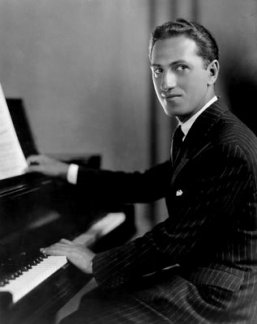

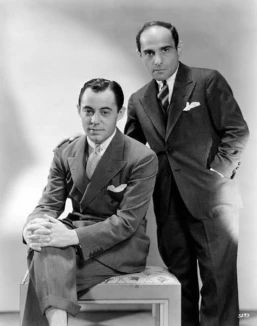

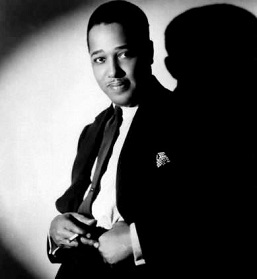


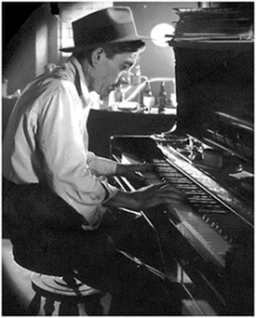
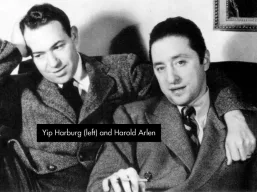
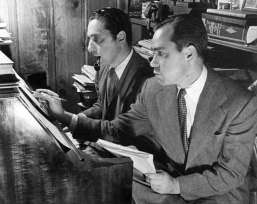



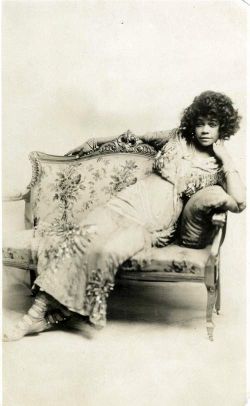





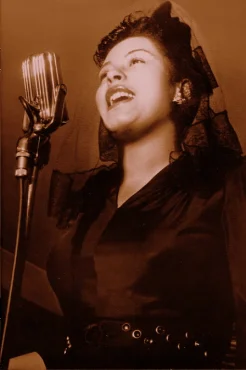




Oct 06, 2010 @ 13:50:53
I may have a picture you like to add on this sight.
BARRELHOUSE BLUES SERIES FOR SMALL SWING BAND’S
DUKE ELLINGTON’S
KRUM ELBOW BLUES
BY DUKE ELLINGTON AND JOHNNY HODGES
PUBLISHED BY EXCLUSIVE PUBLICATIONS
1619 BROADWAY, NEW YORK
@1938
SEEMS TO BE VERY RARE THE ONLY COPIES I
HAVE FOUND ARE IN THE SMITHSONIAN AND THE LIBRARY OF CONGRESS
LET ME KNOW..
Mark
LikeLiked by 1 person
Oct 06, 2010 @ 15:22:02
Hi Mark, You say you have a picture. But the description seems to be of a song. Is it a photo of a manuscript? In any case, I should mention that I seldom pay for photographs or images. Have invested a few thousand hours in this site, but virtually no money…yet — Jim
LikeLike
Oct 11, 2010 @ 10:59:21
Jim,
Not asking for money, this is an awsome site! I understand the work you put into this.
Do you have an e-mail address that you can share? I will send you some more information.
Let me know…
Thanks
Mark
LikeLiked by 1 person
Oct 11, 2010 @ 17:14:11
Mark, Thanks. Yes, here is my email address: musicdoq@gmail.com
LikeLike
Oct 11, 2017 @ 09:22:32
Hi Mark, I looking after an instrumental number he made after travel in the middle-East. It is an Easy & very sad/romactic, Maybe a city name. I have forgotten the name. i hope you can help me. Thanks in advance. Karin
LikeLiked by 1 person
Oct 11, 2017 @ 15:56:46
Hi Karin,
Might you be referring to “Isfahan,” or one of the other numbers on the album The Far East Suite, released in 1967?
doc
LikeLike